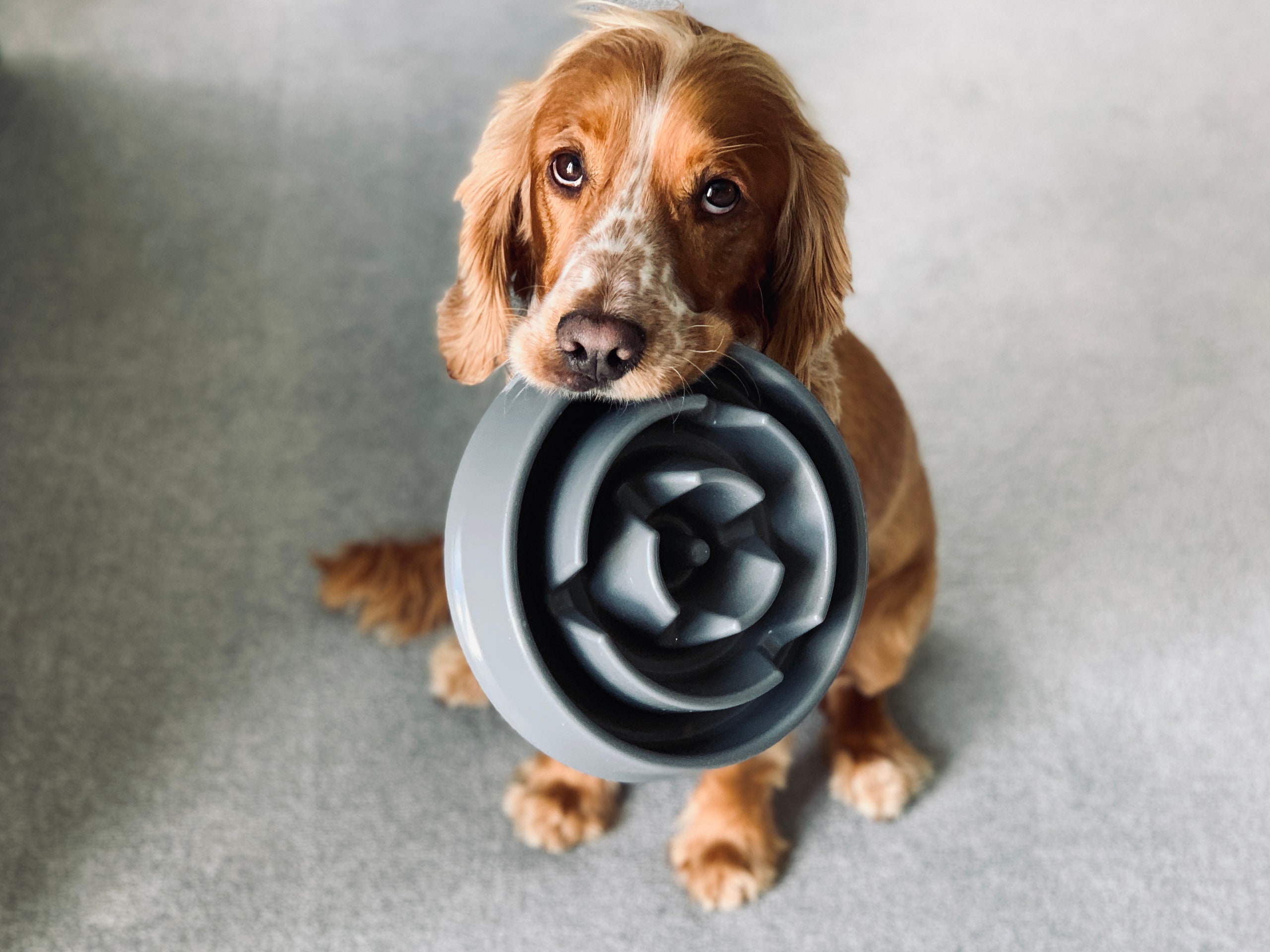
An English Mastiff, a large breed of dog that hails from England, is the English Mastiff. The English Mastiff is likely to have originated from the Alaunt, Pugnaces Britanniae or an ancient dog breed. It was also influenced by the Alpine Massififf in the nineteenth-century. The breed is prone to digging and drooling, but it's also protective and stubborn.
Drool has a tendency to prevail
There are many factors that influence the mastiff's ability to drool. Certain breeds are notoriously dry-mouthed and others are droolers. It is important to choose the right breed. The following chart compares the different mastiff types and their likelihood of drooling. The American Kennel Club has provided information that enables the chart to be created.
Larger dogs with flat faces and lips are more likely to drool than other breeds. The excess saliva in the cheek pouches causes the dog to drool more often than other breeds. A dog that drools excessively may have dental problems.
Sometimes, drooling is a sign that you are experiencing anxiety or pain. Drooling can also be a sign that a dog is anxious or stressed. This is a subtle but telling sign that the dog is in pain and needs to seek medical treatment. Dogs that drool are known as hypersalivation, or ptyalism. This behavior can be caused by many conditions, but dental disease is the most common.
Tendency To Dig

Mastiffs have a natural instinct for digging, especially in the yard. This instinct is to mark their territory. Mastiffs can weigh in excess of 230 pounds so they need large yards. If you don’t have a large yard you might have to dig up your grass to accommodate your Mastiff.
Digging is an instinct that many dogs have, and certain breeds have been bred specifically for it. Northern breeds, for instance, dig in cold weather to keep warm. Others use digging for entertainment when bored.
It's crucial to monitor your Mastiffs digging habits. Make sure that your Mastiff does not dig outside the boundaries of his designated area. Punish him if he attempts to do so. Besides reprimanding your Mastiff when he digs, you should also give him praise when he digs in the appropriate area.
Protective tendencies are a natural part of human nature
Mastiffs love people and are loyal, loving dogs. Although Mastiffs can be friendly and affectionate, they are also stubborn and require consistent positive training to avoid undesirable behavior. It's vital to socialize your Mastiff early in life and encourage positive interactions between them and other dogs. This will stop the dog's aggressive behavior later in his life.
Mastiffs can be friendly and will often play well with children. But they can be very heavy, which could make them a bit more difficult to handle. It's vital to socialize your dog early because they are large and strong. While they're gentle around children, don't try to let them climb on your dog. When Mastiffs are around children, they should be watched carefully.

Mastiffs are strong and large dogs. However, they are loving and tolerant. Mastiffs can be stubborn and can slobber but they are not aggressive and will protect their family. Their temperament and physical structure makes them excellent companions for families.
Tendency to be stubborn
Mastiffs are a powerful breed, but they can be stubborn and difficult pets. The Mastiff is a gentle, loving breed. However, it can be stubborn. Despite its stubbornness, a Mastiff is not a destructive dog. It is a dog willing to do what it believes is best. Mastiffs are known for their stubborn nature, which is useful in protecting the family. If the family is at risk, the dog will intervene and protect them.
Mastiffs should be socialized at an early age to help develop a good temperament. This will enable them to be more effective protectors. They will recognize the difference between friend and foe using body language. They will also be able recognize the signs and movements of children, and how to tell if someone is being disrespectful.
A Mastiff must be a part of a family. They shouldn't be left unattended outside. If they are left alone in their yard, they might feel sad or bored.
FAQ
Do I need to spay/neuter my pet dog?
Yes! It is vital to spay/neuter your dog.
It not only reduces unwanted puppies around the world but also lowers the risk of some diseases.
There is, for instance, a greater chance of breast cancer in female dogs that in male dogs.
Testicular cancer is more common in males than it is in females.
The spaying or neutering of your pet can also help to prevent her from having babies.
Should I get a puppy or a kitten?
It all depends on who you really are. Some people love kittens, while others prefer puppies.
However, puppies tend be more active and playful. Kittens tend to be very gentle and sleep a lot.
Both breeds of animal require constant attention from their owners. They will get older quickly and need to be taken care of.
They will also need regular medical checkups. So, you'll need to spend time taking them to the vet.
What is pet insurance?
Pet Insurance provides financial protection for pets when they are sick or injured. It also covers routine care such as vaccinations or spaying/neutering.
In addition, it pays for emergency treatment if your pet gets into an accident or becomes ill.
There are two types:
-
Catastrophic – This insurance pays for the medical costs of your cat in case of serious injury.
-
Non-catastrophic (This type covers routine veterinary expenses, including microchips and spays/neuters.
Many companies offer both catastrophic as well as non-catastrophic coverage. Others provide only one.
You will need to pay a monthly premium to cover these costs. The amount will vary depending on how much money you spend on pet care.
The price of your insurance depends on which company is chosen. Do your research before purchasing.
There are discounts offered by some companies if you buy more than one policy.
Transferring an existing pet insurance policy with another company is possible.
If you don't want to purchase pet insurance, you will have to pay all the costs yourself.
But there are still ways that you can save money. You can ask your veterinarian about discounts.
He might discount you if you bring your pet to see him frequently.
Another option is to adopt a pet from a local shelter instead of buying one.
It doesn't matter what kind or type of insurance you have, you should always carefully read the fine print.
It will inform you of the amount of your coverage. If you don't understand something, contact the insurer immediately.
Which is the best pet you have?
The best pet? One you love. There is no one right answer. Every person has his own opinion about which pet is the best.
Some people believe that cats can be more loving than dogs. Others say that dogs are more loyal and loving. Still, others argue that birds are the best pet.
But whatever type of pet you choose, you must decide what kind of pet suits your personality.
If you are outgoing and friendly, a dog may be right for you. If you're shy and reserved, a cat would suit your needs best.
Also, consider the size of your apartment or house. A smaller apartment will mean that your pet will require a smaller size. A large house will require more space.
Finally, remember that pets require lots of attention. They require regular food. They should be taken on walks. They must be brushed regularly.
You'll be able pick the best pet for you if you have all of these knowledge.
How to Make Your Pet Happy
Pet owners often wonder about how to make their pets happy. Pet owners often buy toys, treats, or clothes for their pets. However, pets might not enjoy certain things. For example, some dogs cannot stand to wear sweaters.
Try to understand why your pet doesn't love it before you buy it. You may discover that he just likes different kinds of foods than you do. He might even hate shoes.
Another tip: Play with your pet. You can either use a ball or a Frisbee. You can throw it around the room. You can either throw it around the room and let your friend chase it. This game makes both of you laugh. It's both relaxing and enjoyable.
Another good idea is to give your pet a bath once every week or two. Bathing helps remove dead skin cells from his coat. It makes him smell nice.
Also, it is important to ensure your pet's health. Don't let him eat junk food. Do not allow him to eat junk food. Instead, give him high-quality food. He should also get plenty of exercise. Take him for a walk, or play fetch.
Your pet will love spending time with you. Many pets enjoy spending time with their owners.
And finally, remember to love your pet unconditionally. Never yell at, hit or scold your pet. Be patient with your son. Never leave him alone.
Statistics
- Reimbursement rates vary by insurer, but common rates range from 60% to 100% of your veterinary bill. (usnews.com)
- * Monthly costs are for a 1-year-old female mixed-breed dog and a male domestic shorthair cat less than a year old, respectively, in excellent health residing in Texas, with a $500 annual deductible, $5,000 annual benefit limit, and 90% reimbursement rate. (usnews.com)
- Pet insurance helps pay for your pet's medical care, with many policies covering up to 90 percent of your vet bills. (money.com)
- A 5% affiliation discount may apply to individuals who belong to select military, law enforcement, and service animal training organizations that have a relationship with Nationwide. (usnews.com)
- It's among a relatively few companies that provide policies with a full (100%) coverage option, meaning you are not responsible for any co-payment of bills. (money.com)
External Links
How To
How to train a pet dog
A pet dog is an animal companion that provides emotional support and companionship to its owner. It may provide protection against predators and protect other animals.
Pet owners must train their dog to do certain tasks, such as fetching objects, protecting against intruders, obeying orders, performing tricks, and guarding against theft.
The average time for training is between six months to two years. The owner will teach the dog basic obedience skills like how to sit, lie, stay, come when called and walk on command. The owner also teaches the dog how to use basic commands and to respect the dog's natural instincts.
Apart from teaching the basic behaviors to the dog, the owner should teach it to not bite other animals or people and to be respectful of strangers.